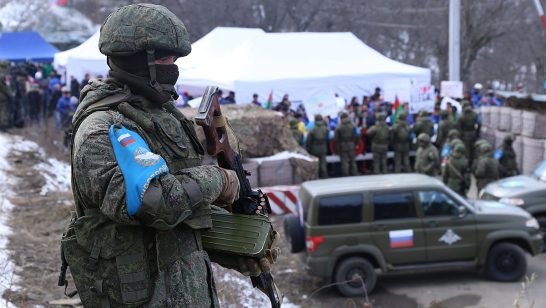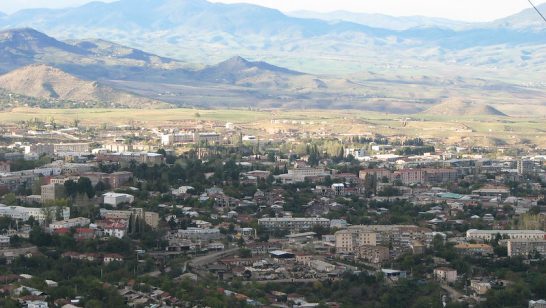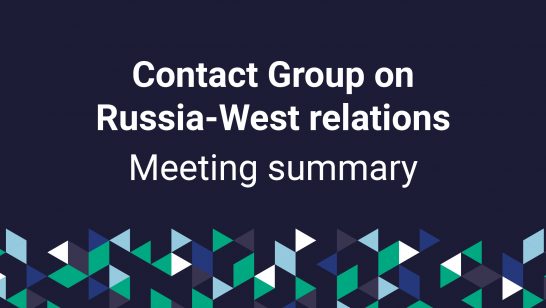
After a military offensive by Azerbaijani forces last week, Azerbaijan has taken control of the enclave of Nagorno Karabakh. So far, one-quarter to a third of the 120,000 ethnic Armenians living there have fled to Armenia. This comes nine months into a blockade of the enclave that the International Court of Justice ruled illegal and which some genocide experts warned could be a precursor to ethnic cleansing; five months after Armenia’s PM said he would be prepared to recognise Nagorno-Karabakh as part of Azerbaijan under certain conditions; and just five days after he said his country could no longer count on Russia as a protector. There are warnings that further violence could ensue between Armenia and Azerbaijan.
The US quickly said the Azerbaijani offensive was unacceptable. But from Azerbaijan’s point of view, it succeeded: the resort to force has compelled the Nagorno-Karabakh authorities to accept Baku’s terms. Lessons will certainly be drawn from that, and not only by Azerbaijan. This will worry European policymakers, who are in the middle of mediating between Armenia and Azerbaijan on a process of normalisation between the two countries. A statement this week from EU President Charles Michel confirmed that meetings on the normalisation process are planned to continue with a possible meeting between the two heads of state in Granada in October; it referred only briefly to the “military operation last week” and asked for “more details on Baku’s vision for the Karabakh Armenians’ future in Azerbaijan”.
There are warnings that further violence could ensue between Armenia and Azerbaijan. Jane Kinninmont
The EU has recently taken on more of a role between Armenia and Azerbaijan, putting high-level efforts into a conflict that has long been seen as neglected and intractable. Technically, in the international multilateral system, the conflict was supposed to be addressed by the Minsk group under OSCE auspices, established in 1992 and co-chaired by Russia, the US and France. Russia-West tensions rendered that group largely moribund in recent years, even before the full-scale invasion of Ukraine. Meanwhile, there is a view in Azerbaijan that Europe lacks credibility when it speaks about human rights, having failed to stand up for Azerbaijanis who were displaced when Armenia first took control of Nagorno Karabakh, in the First Karabakh War (1988-94), which took place as the USSR collapsed.
The Second Karabakh War, in 2020, ended in a Russia-brokered ceasefire and a Russian peacekeeping presence. However, violence flared last year, and in December 2022 the Azerbaijani blockade of the enclave began. The blockade was ruled illegal by the International Court of Justice and condemned by a number of governments, but it still continued. European parliamentarians called for sanctions to be placed on Azerbaijan as a result, but the EU has sought to resolve the problem diplomatically in the context of its mediation between Armenia and Azerbaijan on normalisation. Since February this year it has also stationed a 100-strong civilian monitoring mission inside Armenia.
...there is a view in Azerbaijan that Europe lacks credibility when it speaks about human rights, having failed to stand up for Azerbaijanis who were displaced when Armenia first took control of Nagorno Karabakh, in the First Karabakh War (1988-94), which took place as the USSR collapsed. Jane Kinninmont
Meanwhile, Russia’s role has shifted. Traditionally Armenia has had friendly relations with Russia as well as France and the US. It is part of the Eurasian Economic Union and the Collective Security Treaty Organisation (CSTO). There might, on this basis, still be some common interest between Russia, the US and Europe in preventing further conflict in the region. But this is unclear. One argument made by some experts is that a weakened Russia, preoccupied with Ukraine, had less bandwidth to keep Azerbaijan in check when it came to Nagorno Karabakh. An alternative view is that it is not so much Russia’s capacity that has changed, but its political will.
Azerbaijan has also been expanding its relations with Russia in recent years, including by buying arms. Russia is now the main source of arms for both Armenia and Azerbaijan, according to estimates by SIPRI. Azerbaijan’s gas wealth has given it a confidence boost and increased its leverage in the West, especially at a time when geopolitics have constrained Russian gas supplies to Europe. Azerbaijan also enjoys very close relations with Turkey – Erdogan expressed support for its “steps” in Nagorno Karabakh – as well as with Israel and many Western countries.
Meanwhile, Russia’s ties with Armenia have also been fraying. The roots may lie in Armenia’s “Velvet Revolution” uprising of 2018, when the now-president Nikol Pashinyan, then an MP, came to power on the back of popular protests against a former president who had served the maximum two terms but was seeking to return as prime minister. Pashinyan ushered in a number of political and electoral reforms but also sought to maintain good relations with Russia, mindful of Russia’s negative response to the previous pro-democracy uprisings in Ukraine and Georgia. This balance seems harder to strike today.
Some in Armenia fear that Russia has deliberately held back its peacekeepers to punish Pashinyan and that it might be content to see Azerbaijan go further still and attack Armenia directly - creating a crisis that only Russia could solve and weakening the position of Pashinyan further. Jane Kinninmont
In the last few months, Armenia has accelerated efforts to diversify its relationships, inviting US troops for exercises, saying it is not allied with Russia in the Ukraine war, and starting to send aid to Ukraine. In February, its border with Turkey was opened for the first time in more than three decades to deliver humanitarian aid to victims of the earthquake there. It has also indicated it would recognise Azerbaijani sovereignty over Nagorno Karabakh as part of a mutual recognition package where both countries would agree on Soviet-era borders. The rift between Pashinyan and Moscow has become intense and personalised; Medvedev’s Telegram posts include a recent rant about a leader of a formerly fraternal country whose leader now “flirts with NATO”.
In this context, the relative inaction of Russian peacekeepers may be intentional rather than a sign of weakness. Some in Armenia fear that Russia has deliberately held back its peacekeepers to punish Pashinyan and that it might be content to see Azerbaijan go further still and attack Armenia directly – creating a crisis that only Russia could solve and weakening the position of Pashinyan further. This remains speculation, but not unthinkable when so much in the post-Soviet space is being weaponised.
For months now the EU has been engaged in high-level mediation on normalisation, and it wants to keep this going. But with mass displacement already underway, this needs to be weighed against the risk that the EU is seen as retrospectively accepting what it previously warned must not happen. A range of options need to be on the table to deter further violence. Options to upgrade and expand the EU monitoring mission should also be reviewed, especially as the EU seeks to become a more serious player in European security as well as trade and economics. We will be publishing a number of reflections on what the EU should do next.
The opinions articulated above represent the views of the author(s) and do not necessarily reflect the position of the European Leadership Network or any of its members. The ELN’s aim is to encourage debates that will help develop Europe’s capacity to address the pressing foreign, defence, and security policy challenges of our time.
Image credit: Wikimedia Commons / Mil.ru



